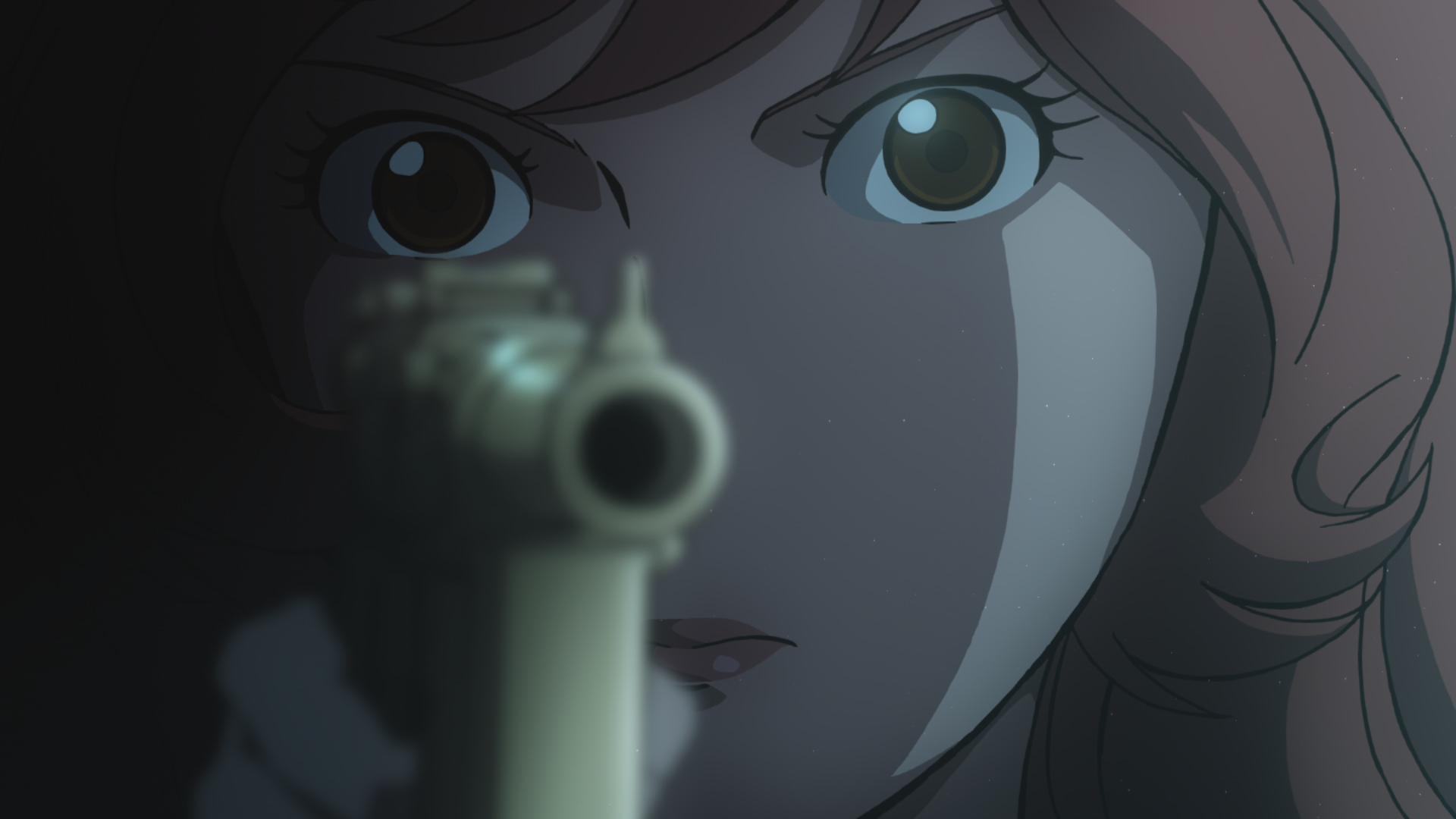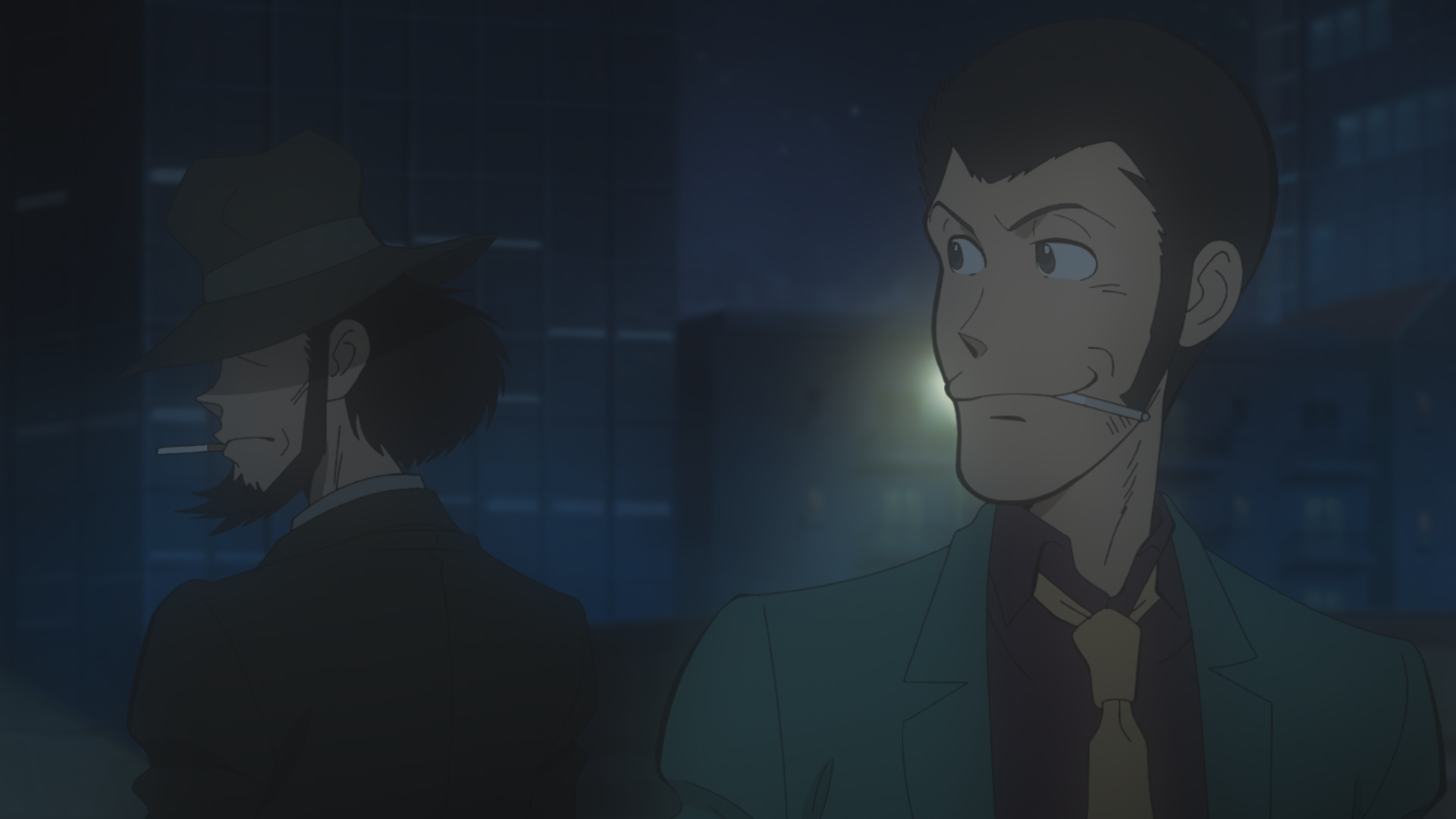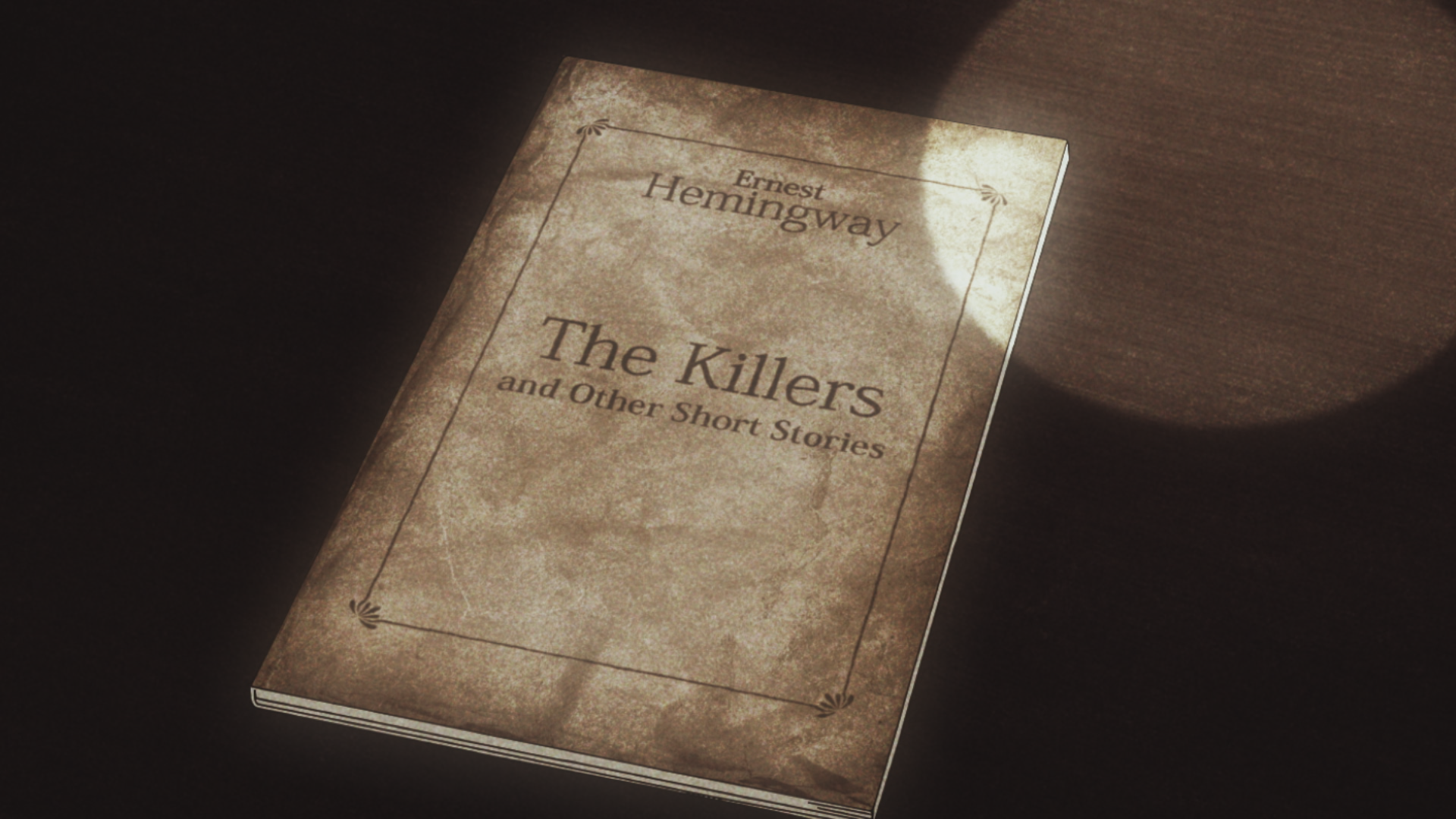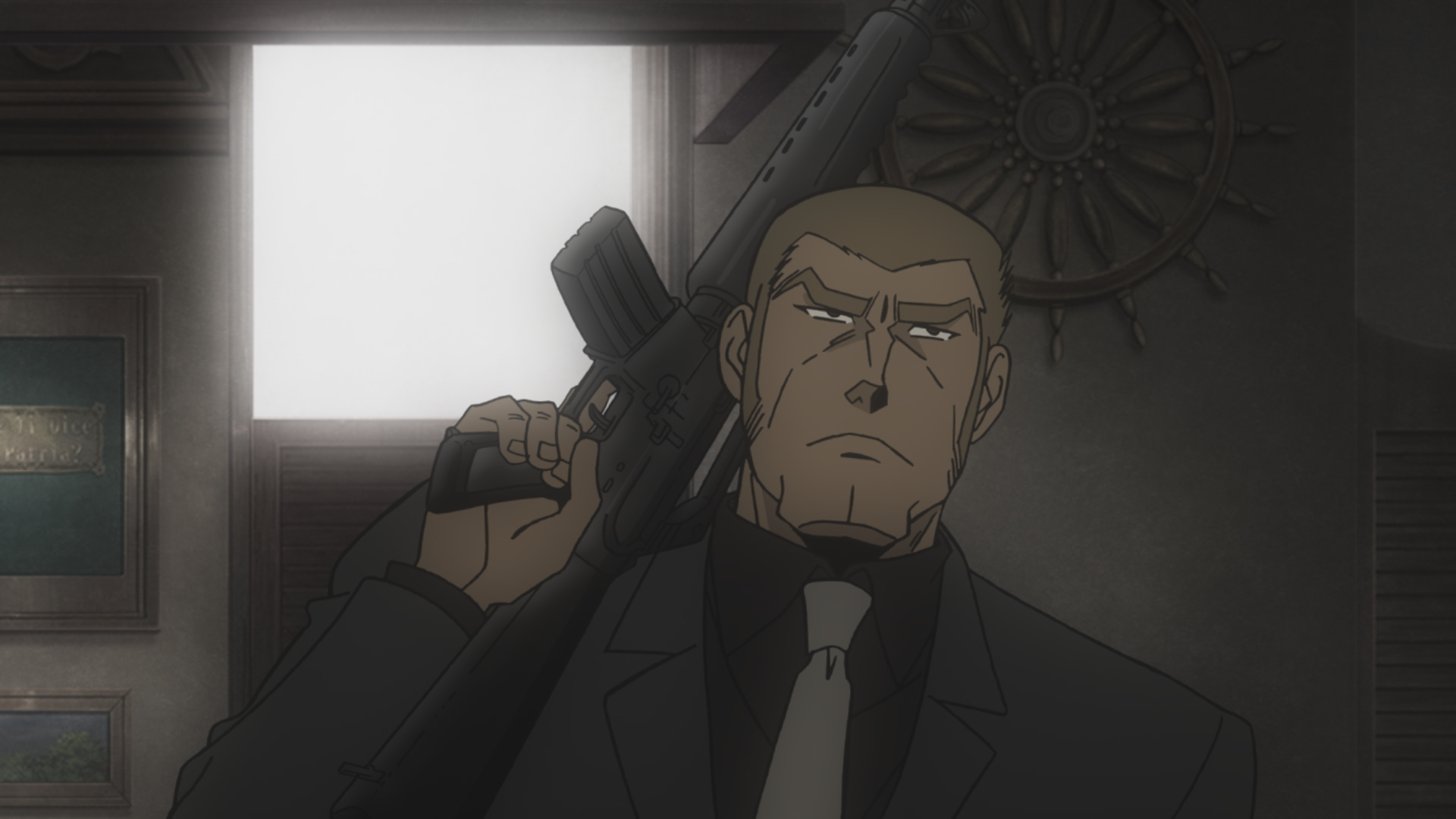Review: Part 6 “Episode 4 ~ The Killers in the Diner”
Welcome to our episode review of Lupin III: Part 6!
Our review is from the perspective of a “hardcore” Lupin III fan, who has seen every episode, film, and special the series has had to offer since its animated inception in 1969. The author's perspective on modern anime however, is lacking. When it comes to anime, we exclusively watch Lupin III, so cannot compare it to other shows on the market. Instead, we can only compare it with Lupin media of the past.
Be aware that there are SPOILERS ahead.
Please only read on if you either have seen the episode already, or do not mind learning about important character interactions and pivotal plot points in advance.
“Episode 4 ~ The Killers in the Diner” is guest written by Mamoru Oshii, the director of several famous animated works such as Ghost in the Shell and Angel’s Egg.
The celebrated filmmaker has finally met with the Lupin III series after nearly thirty years.
Prior to the production of Legend of the Gold of Babylon in the mid-eighties, Oshii was penned as director for a theatrical Lupin release. His rather bizarre premise featured an older, depressed Lupin III, complete with receding hairline, accidentally setting off a nuclear bomb and destroying Tokyo, Japan. In his panic, the film was to then become self-aware, with our thief realizing he was in fact a fictional character, and attempting to escape the film and run away from his crimes.
Understandably, TMS and Toho immediately pulled the plug on the project. In a last-minute change, both Seijun Suzuki and Shigetsugu Yoshida were brought on board, and they hurried together the (rather tame in comparison) Legend of the Gold of Babylon.
Episode four of Part 6 may not be as out there as Oshii’s planned theatrical plot, but it still features his style of “big brain” storytelling at its worst.
The guest writers of Part 6 appear to have been instructed with the rather arbitrary requirement of basing each of their episodes of famous crime fiction. This is due to change in the second cour, and instead focus on mystery fiction. While sounding good on paper, in practise, we feel this limits what the writing staff can do. Thus, we end up with poorly done episodes like Masaki Tsuji’s attempt last week.
Regardless, Oshii is an admitted fan of Ernest Hemingway, and in particular has a thing for the 1927 short story, “The Killers”.
This episode of Part 6 does more than draw inspiration from that short story. In fact, Oshii has decided to recite it word from word, while also dropping the titles of each Hemingway short story included in the collection “Men without Women” into the script.
The result is a spectacular failure in decent storytelling.
Viewers are expected to have both an awareness of Hemingway’s “classic” tale, in addition to an appreciation for Oshii’s rather unusual style of storytelling.
The first half of the episode, much like the original short story, features a long-drawn-out diner scene. Two hitmen, who in this tale are both Lupin and Jigen (a welcome twist in an otherwise boring narrative), sit in at the bar and begin harassing the waiting staff. The dialogue feels random, but this is due to the constant referencing of Hemingway — story titles and quotations flying around in conversation, left right and centre.
This goes on for upwards of ten minutes. It is unnatural, and it doesn’t make sense without the context of the source material — something the average viewer will likely know nothing about.
Despite the dumb references, the scenario is at least a tiny bit interesting, unlike the second half (we’ll get to that momentarily)!
Stepping away from the source material for a second, various other hitmen can be seen in the diner (including Golgo 13, a nice nod for unfortunate fans of Oshii’s work). Their purpose? They’re waiting for their hit. A rather nicely animated fight scene eventually breaks out, and the two hitmen ditch their disguises, to enter the kitchen and find that the waitress was, in fact, an imposter.
The second act of the episode is a huge story dump.
Fujiko is one step ahead of Lupin and Jigen, as she visits the hit in his house or apartment. Like in the original story, the hit is informed of his impending doom, only for him to admit defeat and lay quiet, awaiting his fate. In Oshii’s version, Fujiko then pulls out a gun and it is implied that she kills the hit, a twist that likely sounded far better on paper than it does in motion.
Lupin and Jigen meet with Fujiko, who reveals she was disguised as the waitress all along. The trio talk of searching for an extremely rare code book, Ernest Hemingway’s The Killers, and “treat” viewers to the history of Ernest Hemingway and his story. Both Lupin and Fujiko explain that they were purposely referencing the original story in the diner, while Jigen, much like the viewer, has no clue as to what is happening.
Not before long, the gang decide to turn their guns on one another, only for the episode to end — once again, with the painfully jarring cut to the pastel colours and bubbly tune of the Milk Tea ending sequence.
What the fuck?
Regardless of the gang’s involvement and the completely nonsensical cliffhanger end, the story exposition is an inexcusable stunt to pull from a celebrated writer and director. Viewers saw the same thing last week, halfway through episode three, and in episode four, it’s even worse. It’s a perfect exercise in learning how to quickly lose a viewer’s interest.
The Lupin series can sometimes be at its best when trying something unexpected and different, but not here.
The outlet Oshii has chosen to tell his rather bizarre love letter to Ernest Hemingway makes little sense in the grander context of the series, and it does not fit.
Had the diner scene stretched the entire twenty-minute length of the episode, perhaps things would have been different. The other hitmen in the diner could have had some dialogue and been fleshed out more. Perhaps the references would not have felt as crammed in. The insane story dump would not have been necessary.
Instead, this episode ended up as a disappointing missed opportunity. A special shout-out goes to the moment where the two hitmen (Lupin and Jigen) ask the waitress (Fujiko) what a plaque says on the wall. She mishears, and instead reads out a Hemingway short story title, which is plastered randomly on the front of a painting.
Brilliant. Genius. Well done.
The barrier for entry to this episode is far too high, and it is one we would not recommend.
The cast feel misused, and the pacing is stilted at best. We can only hope next week’s two-parter by Taku Ashibe improves things from here, because we’re about ready to make like Ole Anderson and throw in the towel.








